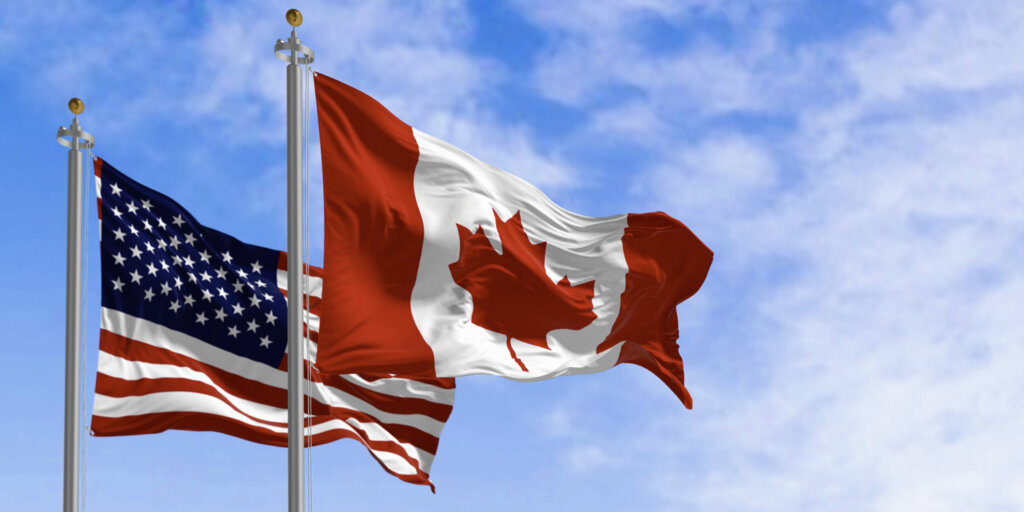Home » Essential Insights for Founders Regarding Proposed U.S. Tariffs
Essential Insights for Founders Regarding Proposed U.S. Tariffs

The recent pause on proposed U.S. tariffs on Canadian goods provides a vital window for the startup community, as the repercussions could include significant economic turmoil. Economists from RBC caution that these tariffs—the potential for a 25 percent levy on Canadian imports, excluding energy products, which would face a 10 percent tariff—could represent the most extreme trade shock in a century. With approximately $1.9 billion worth of goods and services exported daily from Canada to the U.S., any trade war could adversely impact Canada's economy, growth, employment rates, investment, and inflation.
While sectors such as automotive, construction, manufacturing, critical minerals, and agriculture are likely to experience the most considerable adverse effects, the entire Canadian economy could feel these ripples. On the other hand, the tech community, known for its optimistic outlook, may view the crisis as an opportunity for innovation and the exploration of new trading partnerships. As such, it is essential for businesses to adopt a proactive and strategic approach to navigate the uncertainties ahead.
Companies must assess how the potential tariffs will affect their competitive positioning, particularly regarding pricing and profit margins in the U.S. They can utilize resources such as the cash flow calculator provided by BDC to project financial scenarios. Shannon Lee Simmons, a financial planner, advocates for focusing on short-term planning. Businesses should map key challenges that could arise in 3-4 weeks and run through worst-case scenarios to remain prepared. This preparation helps to alleviate panic as companies can assure themselves they have plans in place should challenges emerge.
For those exporting to the U.S., ascertaining whether tariffs apply to their products is crucial. Tools like the Canada Tariff Finder and HS classification can clarify tariff implications. Importantly, the importer of record typically pays the tariffs unless specified otherwise in contracts, thus revealing the need for due diligence in contractual agreements.
Despite current calm, strategic planning is still essential. Historical economic events, such as the COVID-19 pandemic and the 2008 financial crisis, provide insight into effectively managing these uncertain times. Companies may need to reconsider large financial commitments in light of potential tariff implementation while balancing immediate financial actions with long-term perspectives.
Investment dynamics are also shifting due to uncertainty surrounding tariffs. Investors are wary, seeking clearer information to assess opportunities effectively. This unpredictability could dampen Canada’s appeal as a business location, particularly as its advantages are tied to access to the U.S. market. According to Danielle Goldfarb of the Munk School, many businesses have chosen Canada for its competitive labor costs and educated workforce, along with unrestricted access to American markets.
Lastly, industry leaders are calling for measures to bolster Canadian companies amidst these challenges. Strengthening inter-provincial trade and modernizing procurement processes are crucial steps needed to support homegrown startups, ensuring they remain competitive on a global scale. The emphasis is on leveraging domestic market opportunities while addressing outdated policies that hinder Canadian innovation.
The landscape ahead remains uncertain, but with proactive planning and strategic dialogue, the startup community can seek to mitigate the impact of these potential tariffs while positioning themselves for future growth.
MaRS Discovery District
https://www.marsdd.com/
MaRS is the world's largest urban innovation hub in Toronto that supports startups in the health, cleantech, fintech, and enterprise sectors. When MaRS opened in 2005 this concept of urban innovation was an untested theory. Today, it’s reshaping cities around the world. MaRS has been at the forefront of a wave of change that extends from Melbourne to Amsterdam and runs through San Francisco, London, Medellín, Los Angeles, Paris and New York. These global cities are now striving to create what we have in Toronto: a dense innovation district that co-locates universities, startups, corporates and investors. In this increasingly competitive landscape, scale matters more than ever – the best talent is attracted to the brightest innovation hotspots.


